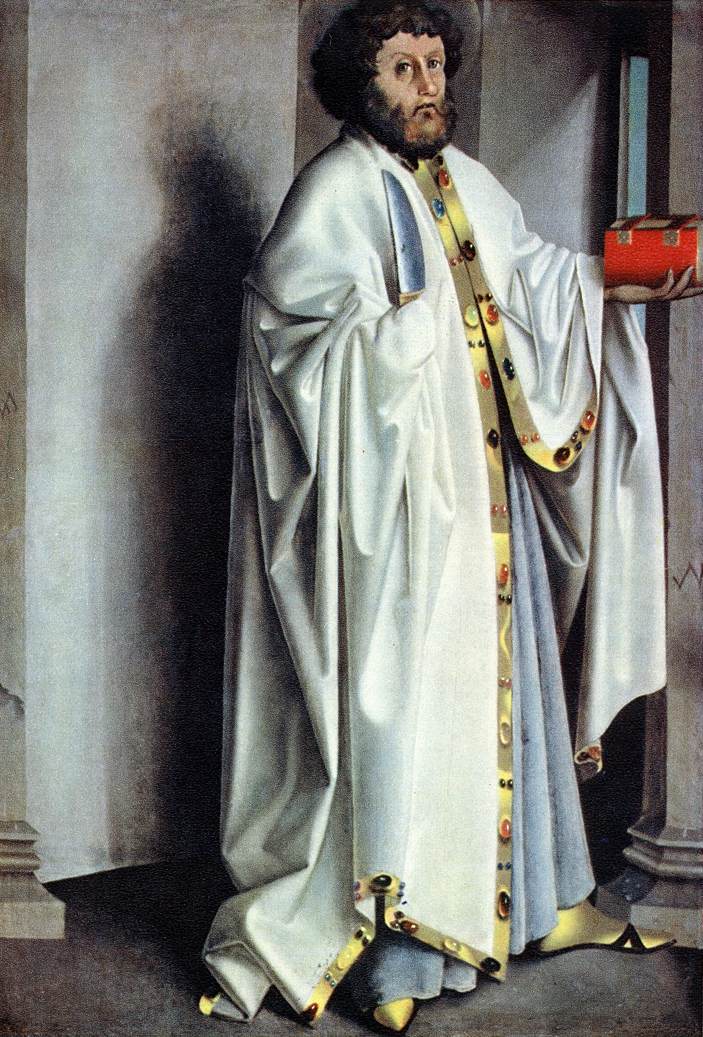Description
The painting "St Bartholomew" by artist Konrad Witz is a fascinating work that deserves attention and appreciation for its unique artistic style, carefully crafted composition, use of color, and intriguing story.
As for the artistic style, "St Bartholomew" clearly shows the influence of the early Renaissance in Europe. Witz uses a detailed and realistic technique to depict Saint Bartholomew, the patron saint of tanners and butchers. The artist manages to capture anatomy and detail impressively, demonstrating his skill and mastery of the art.
The composition of the painting is another interesting aspect to highlight. Witz places Saint Bartholomew at the center of the work, surrounded by a natural and serene landscape. The figure of the saint stands out above everything else, giving it a sense of importance and power. Additionally, the artist uses a technique known as "aerial perspective" to create a sense of depth and space in the painting.
As for color, Witz uses soft, subtle tones that give the work a sense of calm and serenity. Earthy colors and warm skin tones contribute to the overall atmosphere of the painting, conveying a sense of calm and spirituality.
The story of the painting "St Bartholomew" is also worth noting. It is believed to have been created around 1444-1447 and is currently in the Art Museum in Basel, Switzerland. The work represents the martyrdom of Saint Bartholomew, who was skinned alive for his Christian faith. This religious theme and the vivid depiction of the saint's suffering make this painting a powerful and moving work.
In addition to these more well-known aspects, there are other lesser-known details that make "St Bartholomew" even more interesting. For example, this painting is believed to be one of the first realistic depictions of a male nude in European art history. This shows Witz's boldness and innovation in challenging the artistic conventions of his time.
In summary, the painting "St Bartholomew" by Konrad Witz is a remarkable work of art that deserves appreciation and study. Its artistic style, careful composition, use of color, intriguing history, and lesser-known aspects make it a unique and fascinating piece in the world of art.

